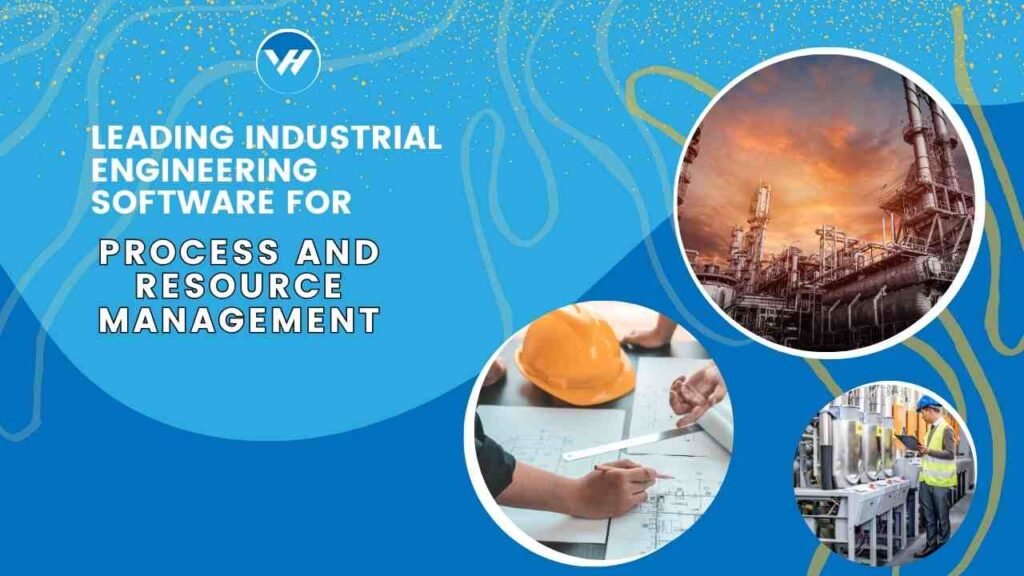Industrial engineering is all about optimizing complex processes and systems within organizations to make them more efficient and effective. It combines engineering principles with business practices to improve productivity, reduce waste, and streamline operations. With industrial engineering software, businesses can gain the tools they need to manage and enhance their processes and resources seamlessly.

Table of Contents
ToggleImportance of Process and Resource Management
Effective process and resource management are crucial for any organization aiming to stay competitive. By managing processes efficiently, businesses can ensure that resources are utilized effectively, reducing costs and improving overall performance. Industrial engineering software plays a pivotal role in achieving these goals by providing tools for process optimization, resource allocation, and data analysis.
Key Features to Look for in Industrial Engineering Software
Process Optimization
When evaluating industrial engineering software, one of the primary features to consider is process optimization. This involves the software’s ability to analyze and improve workflows, identify bottlenecks, and suggest enhancements. The best software solutions offer robust tools for mapping processes, simulating scenarios, and optimizing workflows to boost efficiency.
Resource Allocation and Management
Resource management is another critical feature. The software should provide capabilities for tracking and managing resources, including personnel, equipment, and materials. Features such as real-time resource tracking, allocation planning, and utilization analysis can significantly impact the effectiveness of resource management.
Data Analytics and Reporting
Data analytics and reporting are essential for making informed decisions. Look for software that offers advanced analytics tools to gather, analyze, and visualize data. Customizable reports, dashboards, and real-time data insights help organizations monitor performance and make data-driven decisions.
Integration Capabilities
The ability to integrate with other systems is crucial for seamless operations. Industrial engineering software should be able to connect with various business systems, such as ERP, CRM, and supply chain management tools. Integration ensures that data flows smoothly between systems, reducing the risk of errors and improving overall efficiency.
How to Choose the Right Software for Your Needs
Assessing Your Business Requirements
Choosing the right industrial engineering software starts with understanding your business requirements. Assess your needs in terms of process optimization, resource management, and data analytics. Consider factors like the size of your organization, the complexity of your processes, and your budget.
Comparing Features and Costs
Once you have a clear understanding of your needs, compare the features and costs of different software solutions. Look for software that offers the functionalities you require within your budget. Don’t forget to consider additional costs such as training and support.
Evaluating User Reviews and Support
User reviews and support are critical factors in choosing the right software. Look for feedback from other users to understand their experiences with the software. Evaluate the level of support offered by the provider, including training resources and customer service.
Implementing Industrial Engineering Software Successfully
Planning and Preparation
Successful implementation starts with careful planning and preparation. Define your goals, set up a project plan, and ensure that all stakeholders are involved. Prepare your team for the transition by providing necessary training and resources.
Training and Onboarding
Proper training and onboarding are crucial for a smooth transition. Ensure that your team is well-trained in using the new software and understands how it fits into their workflows. Provide ongoing support to address any issues that arise during the implementation phase.
Monitoring and Continuous Improvement
After implementation, continuously monitor the software’s performance and seek feedback from users. Use this feedback to make improvements and adjustments as needed. Regularly review your processes and resource management strategies to ensure that the software continues to meet your needs.
Future Trends in Industrial Engineering Software
Artificial Intelligence and Machine Learning
Artificial intelligence (AI) and machine learning are set to revolutionize industrial engineering software. These technologies will enable more advanced data analysis, predictive analytics, and process automation, helping organizations stay ahead of the curve.
Cloud-Based Solutions
Cloud-based solutions are becoming increasingly popular due to their flexibility and scalability. They offer the advantage of accessing data and applications from anywhere, reducing the need for on-premises infrastructure and improving collaboration.
Enhanced Integration with IoT
The Internet of Things (IoT) is transforming industrial engineering by providing real-time data from connected devices. Enhanced integration with IoT will enable better monitoring, control, and optimization of processes and resources.
Conclusion
In summary, choosing the right industrial engineering software is essential for optimizing processes and managing resources effectively. Look for software that offers robust process optimization, resource management, data analytics, and integration capabilities. Consider your business requirements, compare features and costs, and evaluate user reviews and support to make an informed decision.
Investing in the right software can lead to significant improvements in efficiency and productivity. Take the time to assess your needs, explore different options, and choose a solution that aligns with your goals. With the right tools and implementation strategy, you can enhance your process and resource management capabilities and drive your organization’s success.
FAQs
What is industrial engineering software used for?
Industrial engineering software is used to optimize and manage complex processes and resources within organizations. It helps improve efficiency, reduce waste, and streamline operations.
How do I know if I need industrial engineering software?
If your organization deals with complex processes, resource management, and data analysis, industrial engineering software can help you optimize these areas. Assess your business needs to determine if software solutions are required.
What are some common features in industrial engineering software?
Common features include process optimization, resource management, data analytics, reporting tools, and integration capabilities with other business systems.
How can industrial engineering software improve my business processes?
Industrial engineering software can improve your business processes by providing tools for process mapping, optimization, resource allocation, and data analysis, leading to increased efficiency and reduced costs.
Are there any free options available for industrial engineering software?
While most industrial engineering software solutions are paid, there may be free or open-source options available. However, these may have limited features and capabilities compared to paid solutions.





